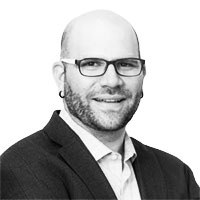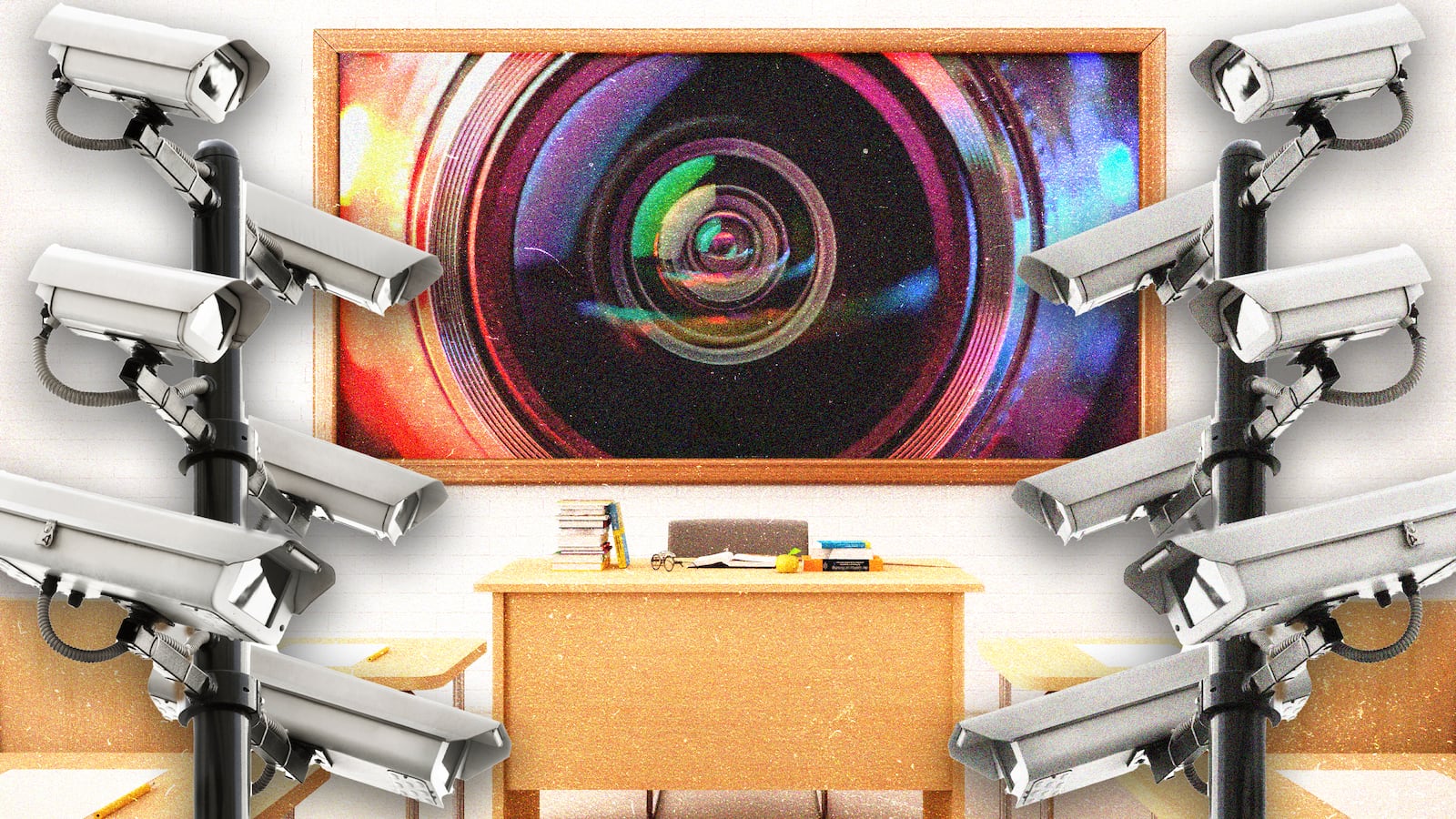Just as opposition has mounted to Republican proposals to enforce gag orders on teachers and ban books from schools, right-wingers have shifted tactics, adopting a new policy objective under the spurious umbrella of “transparency.”
Don’t be fooled by the neutral-sounding language. By any other name, this is an effort to monitor teachers that echoes the worst urges of McCarthyism and feels like Orwell’s Big Brother brought to life.
Transparency is a good thing in a democracy. It’s important that citizens, organizations, and journalists have opportunities to file open records requests, to investigate corruption in school boards, or to examine curricular documents at a state or school board level.
But what’s being advanced is a radical form of teacher surveillance that would place enormous burdens on educators and chip away at the freedom to learn, teach, and share ideas and perspectives. Constraining educators in this way will only harm students in the process.
Placing video cameras in classrooms is one idea some Republicans have put forward. Another is an open door policy where parents—or even “taxpayers”—could sit in on any K-12 class as they desire. Bills in many states would mandate the creation of public websites where individual teachers would be made to account for every single book or material they give students in every class, every day.
Putting curriculum online for parents is one thing. But these proposals would allow anyone to examine teachers under a microscope, and could lead to misinterpretations, taking materials out of context, and even, threats and harassment. Framing this merely as “transparency” is deeply disingenuous.
Backers of these bills have claimed that they are simply advancing “parents’ rights,” helping parents and taxpayers know what’s taught in schools, or supporting teachers’ planning. But everyone knows that this “transparency” movement comes at the tail-end of a year-long campaign in which many conservative activists and Republican legislators have introduced educational gag orders to prohibit discussions of so-called “divisive concepts” in schools, playing into a national panic over critical race theory.
Christopher Rufo, one of the leading activists who has championed the fight against CRT, has explicitly described a strategy to “…use a non-threatening, liberal value—‘transparency’—to force ideological actors to undergo public scrutiny.”
Not all GOP lawmakers got the memo.
Kansas’ Republican Senate President Ty Masterson is pushing one of these bills, and he explained his motives, noting that CRT is an “ideological worldview that embeds itself in all types of curriculum.” The best way to root it out, he said, was “curriculum transparency."
In states like Missouri, Indiana, and South Carolina, meanwhile, bills that would advance these transparency measures are the same ones that propose to ban certain topics. They contain ideological prohibitions, threats of punishment, and surveillance mechanisms all rolled into one. And these bills come simultaneously with a raft of legislative proposals to defund schools or reprimand teachers if they cross certain ideological lines around race and LGBTQ identities. The message to teachers is clear: “Big Brother is Watching You.”
Regardless of how benign some of these bills seem on the surface, this censorious intent lies just below. These are proposals that come out of an authoritarian playbook: ways for the state to monitor and inspect teachers’ day-to-day work with unprecedented precision, and with punitive measures attached. The aim is clearly to intimidate teachers, to make them second-guess everything they say, to politicize and police what they do.
To be fair, these proposals would be a bad idea if they were coming from either left or right.
No matter the motivation, they would put the freedom to teach and learn in jeopardy. No teacher can conduct their work in a classroom so closely scrutinized by a range of ideological extremes. What happens when parents with differing politics both demand change? Or each call for teachers to be fired? Teachers need space to engage their students on difficult issues and spur critical thinking, without fear of who is looking over their shoulder. Their ability to do so would inarguably be undermined by systems to record, track, monitor, and inspect their every move.
Parents, of course, are the most responsible for their kids’ growth and development. Their involvement in schools should be welcomed and encouraged. But any parent who wants to know what their child is learning in school already has ample ways to find out: review state standards, attend a curriculum night or a PTA meeting, speak one on one with a teacher, or just ask their kid at the dinner table. Parents should have a seat at the table as a partner to educators. They already do.
In a free society, a lot of power is given to the expertise of professional educators in choosing how to teach certain topics and what books to present. But teachers subject to these “transparency” requirements will be inclined to self-censor, stay away from controversial subjects, and avoid discussing uncomfortable historical truths—such as those related to slavery, women’s suffrage, or Native American history.
In practical terms, they will be disincentivized from teaching creatively or making changes on the fly—something good teachers do all the time.
What these Big Brother bills will do is dumb down our children’s education. On camera, or off, that’s something that most parents do not want to see.








